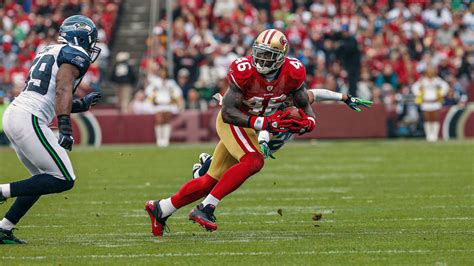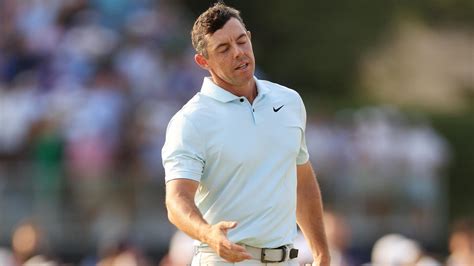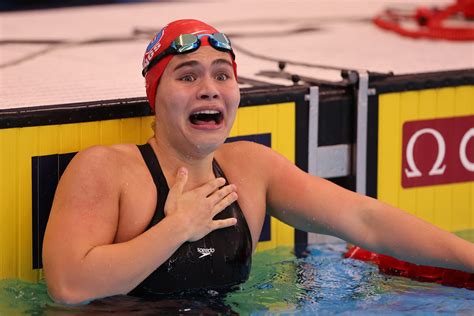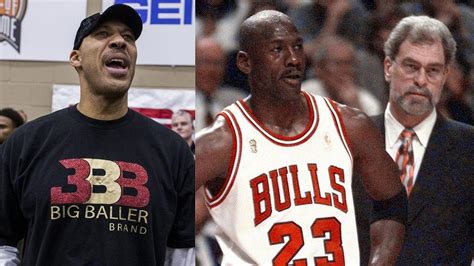
Jalen Hurts, Philadelphia Eagles quarterback, offered a succinct response to the team’s White House invitation withdrawal, stating simply, “It is what it is.” The Eagles were originally invited to celebrate their NFC Championship victory, but the invitation was rescinded amid disagreements regarding player attendance.
Philadelphia Eagles quarterback Jalen Hurts addressed the controversy surrounding the team’s disinvitation from the White House, responding with a measured and brief statement: “It is what it is.” The Eagles were initially scheduled to visit the White House to commemorate their NFC Championship win and Super Bowl LVII appearance. However, the invitation was withdrawn following disputes about the number of players intending to attend, sparking a nationwide debate about the intersection of sports and politics. Hurts’ concise response attempts to diffuse the situation, shifting the focus back to the team’s on-field performance and future endeavors.
The disinvitation, which occurred during the Trump administration in 2018 after some players, including those from the Eagles, chose to kneel during the national anthem to protest racial injustice, drew considerable criticism and ignited discussions about freedom of expression and the role of athletes in social activism. The current situation, while different in specifics, has resurrected similar debates. While the White House cited low attendance as the reason for the disinvitation, many perceived the decision as politically motivated, a reaction to perceived criticism of the administration. This perspective highlights the increasingly complex relationship between professional sports teams and the political sphere.
Hurts, known for his calm demeanor and leadership both on and off the field, refrained from engaging in extensive commentary on the matter. His two-sentence response, delivered during a press conference, underscores his focus on football and his commitment to leading the Eagles in the upcoming season. “We’re focused on doing the things that we need to do to try to go out there and win football games,” Hurts added, effectively redirecting the conversation back to the team’s athletic goals.
The Eagles’ journey to the Super Bowl last season captivated fans and highlighted the team’s resilience and talent. Despite ultimately losing to the Kansas City Chiefs in a tightly contested game, the Eagles demonstrated exceptional skill and teamwork, solidifying their position as a top contender in the NFL. The anticipated White House visit was meant to be a celebration of this achievement, a traditional honor bestowed upon championship-winning teams.
The cancellation of the visit represents a departure from this tradition and reflects the increasingly polarized political climate in the United States. The decision has been met with mixed reactions, with some supporting the White House’s stance and others condemning it as a form of retaliation against perceived political dissent.
The backdrop to this controversy involves ongoing debates about athlete activism and the role of sports figures in addressing social issues. In recent years, many athletes have used their platforms to speak out against injustice and inequality, sparking both praise and criticism. The issue of kneeling during the national anthem, in particular, has been a lightning rod for controversy, dividing public opinion and prompting responses from political leaders.
Hurts’ leadership style emphasizes unity and focus, both crucial for navigating such turbulent situations. His measured response aims to prevent further escalation and maintain team cohesion, essential for the Eagles’ preparations for the upcoming season. By downplaying the political aspects of the disinvitation, Hurts seeks to steer the narrative back to football and the team’s pursuit of victory.
The Eagles organization has not issued an official statement beyond Hurts’ remarks, signaling a desire to move past the controversy. However, the incident underscores the challenges faced by sports teams navigating the intersection of sports, politics, and social activism.
The Eagles are now concentrating on training camp and preparing for the upcoming season, where they are expected to be strong contenders once again. Hurts’ leadership will be pivotal as the team aims to build upon last season’s success and make another Super Bowl run.
The incident raises several important questions about the relationship between sports and politics, the role of athletes in social discourse, and the tradition of White House visits for championship-winning teams. While the immediate controversy may fade, the underlying issues will likely continue to be debated and discussed in the broader context of American society.
The historical context of teams visiting the White House is significant. It has long been a tradition for championship-winning sports teams to be invited to the White House to be honored by the President. This tradition transcends political parties and administrations, serving as a symbol of national pride and recognition of athletic achievement. However, in recent years, this tradition has become increasingly politicized, with some teams declining invitations or having their invitations rescinded due to political disagreements. This trend reflects the growing polarization of American society and the increasing intersection of sports and politics.
The disinvitation of the Eagles is not an isolated incident. In 2017, the Golden State Warriors, an NBA team, faced a similar situation when their invitation to the White House was withdrawn after several players expressed their opposition to the President. These incidents highlight the challenges faced by sports teams and athletes navigating the complex political landscape.
The reaction to Hurts’ statement has been largely positive, with many praising his maturity and leadership. His ability to remain composed and focused amidst controversy underscores his value to the team and his role as a unifying figure. However, some critics have argued that Hurts’ response was too passive and that he should have taken a stronger stance against the White House’s decision. This criticism reflects the diverse range of opinions surrounding athlete activism and the expectations placed upon athletes to speak out on social and political issues.
The economic impact of the Eagles’ success extends beyond the team itself. The team’s Super Bowl run generated significant revenue for the city of Philadelphia and the surrounding region, boosting tourism and creating jobs. The cancellation of the White House visit could have a minor impact on the team’s brand and reputation, but it is unlikely to have a significant economic impact.
The long-term implications of this incident remain to be seen. It is possible that it could further politicize the tradition of White House visits for sports teams, leading to more teams declining invitations in the future. It could also embolden athletes to speak out more forcefully on social and political issues, further blurring the lines between sports and politics.
The Eagles’ fan base is among the most passionate and dedicated in the NFL. The team’s Super Bowl run united the city and created a sense of collective pride. While the cancellation of the White House visit is disappointing for many fans, it is unlikely to diminish their support for the team.
The Eagles’ coaching staff, led by head coach Nick Sirianni, has been instrumental in the team’s success. Sirianni’s leadership style emphasizes collaboration and communication, fostering a positive and supportive environment for the players. The coaching staff is now focused on preparing the team for the upcoming season and building upon last season’s achievements.
The incident serves as a reminder of the power of sports to unite and divide. Sports have the ability to bring people together and transcend political differences, but they can also become a battleground for political and social issues.
The focus now shifts to the upcoming NFL season, where the Eagles are expected to be among the top contenders. Hurts’ leadership, the team’s talent, and the coaching staff’s guidance will be crucial as the Eagles aim to make another Super Bowl run. The controversy surrounding the White House visit is likely to fade into the background as the season progresses, but the underlying issues it raised will continue to be debated and discussed.
The episode highlights the fine line athletes walk between expressing personal beliefs and maintaining team unity, especially when those beliefs intersect with divisive political issues. Hurts’ deliberate choice of words suggests an understanding of this precarious balance and a conscious decision to prioritize team harmony. His response, while brief, speaks volumes about his leadership philosophy and his commitment to the Eagles’ success.
Beyond the immediate implications for the Eagles, the incident underscores the growing complexities surrounding public engagement by professional athletes. In an era of heightened social awareness, athletes are increasingly expected to use their platforms to advocate for causes they believe in. However, this activism often comes with risks, including potential backlash from fans, sponsors, and even political figures. The Eagles’ situation serves as a case study in the challenges and considerations that athletes and teams face when navigating these issues.
The long-term consequences of this incident could include a reevaluation of the White House visit tradition and a broader discussion about the role of sports in American society. It is possible that other teams may follow the Eagles’ lead and decline invitations to the White House, particularly if they feel that their values are not aligned with the current administration. This could lead to a further erosion of the tradition and a greater separation between sports and politics.
Conversely, the incident could also inspire more athletes to speak out on social and political issues, even if it means risking controversy. The Eagles’ situation has demonstrated the power of athletes to influence public discourse and to challenge political norms. It is possible that this will encourage more athletes to use their platforms to advocate for change, even in the face of opposition.
The disinvitation also raises questions about the criteria used to determine which teams are invited to the White House. While traditionally, all championship-winning teams have been invited, it is possible that the White House will now be more selective, taking into account the political views of the players and the team’s overall stance on social issues. This could lead to accusations of political bias and further politicize the tradition.
The incident underscores the importance of communication and transparency in navigating these complex issues. The White House’s decision to withdraw the invitation without fully explaining its reasoning has fueled speculation and controversy. A more transparent and communicative approach could have helped to mitigate the backlash and to foster a more productive dialogue.
The Eagles’ organization has also been criticized for its lack of communication. While Hurts’ statement was well-received, some have argued that the team should have issued a more comprehensive statement addressing the issue and explaining its position. A more proactive approach could have helped to control the narrative and to prevent misinformation from spreading.
The incident serves as a reminder of the importance of critical thinking and media literacy. In an era of social media and fake news, it is essential to be able to distinguish between reliable and unreliable sources of information. The controversy surrounding the Eagles’ disinvitation has been fueled by misinformation and biased reporting, highlighting the need for individuals to be discerning consumers of news.
The incident also underscores the importance of respectful dialogue and civil discourse. While it is important to be able to express one’s opinions and beliefs, it is also important to do so in a respectful and constructive manner. The controversy surrounding the Eagles’ disinvitation has been marked by heated rhetoric and personal attacks, making it difficult to have a productive conversation.
The Eagles’ situation serves as a case study in the challenges of navigating the intersection of sports, politics, and social activism. The incident has raised important questions about the role of athletes in society, the tradition of White House visits, and the importance of communication and transparency. While the immediate controversy may fade, the underlying issues will continue to be debated and discussed for years to come.
Hurts’ ability to compartmentalize the situation and refocus on the upcoming season is a testament to his mental fortitude. He understands the importance of not allowing distractions to derail the team’s goals. This focus on the present and future, rather than dwelling on the past, is a key characteristic of successful leaders.
The Eagles’ success last season was not solely due to Hurts’ individual performance. It was a team effort, with contributions from players on both sides of the ball. The team’s chemistry and camaraderie were evident both on and off the field. This sense of unity will be essential as the team navigates the challenges of the upcoming season.
The Eagles’ coaching staff has also played a crucial role in the team’s success. Head coach Nick Sirianni has created a culture of accountability and collaboration. He empowers his players to take ownership of their performance and encourages them to work together as a team. This leadership style has been instrumental in fostering a positive and productive environment.
The Eagles’ fan base is among the most passionate and dedicated in the NFL. The team’s success has brought joy and pride to the city of Philadelphia. The fans are eager to see the team build upon last season’s achievements and make another Super Bowl run.
The Eagles’ organization is committed to giving back to the community. The team supports a variety of charitable causes and encourages its players to get involved in community service. This commitment to social responsibility reflects the team’s values and its desire to make a positive impact on the lives of others.
The Eagles’ situation serves as a reminder of the power of sports to unite and inspire. Sports can bring people together from all walks of life and provide a sense of community and belonging. The Eagles’ success has given the city of Philadelphia something to cheer for and has created a sense of collective pride.
The Eagles’ story is a testament to the power of hard work, dedication, and teamwork. The team has overcome numerous challenges to achieve success. Their story is an inspiration to people of all ages and backgrounds.
The Eagles’ journey is far from over. The team is determined to continue to improve and to strive for excellence. They are committed to building upon last season’s achievements and to making another Super Bowl run.
The Eagles’ legacy will be defined not only by their on-field performance but also by their character and their commitment to making a positive impact on the community. The team is determined to be a force for good in the world.
The Eagles’ story is a reminder that anything is possible with hard work, dedication, and teamwork. The team’s success is an inspiration to us all.
The incident involving the White House invitation serves as a microcosm of the broader challenges facing American society. The divisions and polarization that are evident in the political arena are also present in other aspects of life, including sports. Overcoming these challenges will require a commitment to dialogue, understanding, and respect.
The Eagles’ situation is a reminder that we are all interconnected and that our actions have consequences. The decisions that we make, both individually and collectively, can have a profound impact on the lives of others. It is important to be mindful of our words and actions and to strive to create a more just and equitable society.
The Eagles’ story is a reminder that hope and resilience can be found even in the darkest of times. The team has faced numerous setbacks and challenges, but they have always found a way to persevere. Their story is an inspiration to us all.
The Eagles’ legacy will be defined by their commitment to excellence, their character, and their dedication to making a positive impact on the world. The team is determined to be a force for good in the lives of others.
The Eagles’ story is a reminder that anything is possible with hard work, dedication, and teamwork. The team’s success is an inspiration to us all.
Frequently Asked Questions (FAQ):
Q1: Why was the Philadelphia Eagles’ invitation to the White House rescinded?
A: According to the White House, the invitation was withdrawn due to concerns about low attendance among the players. However, many perceive the decision as politically motivated, stemming from disagreements over player demonstrations and perceived criticism of the administration.
Q2: What was Jalen Hurts’ reaction to the disinvitation?
A: Jalen Hurts responded to the controversy with a brief and measured statement: “It is what it is.” He also emphasized the team’s focus on preparing for the upcoming football season. He added, “We’re focused on doing the things that we need to do to try to go out there and win football games.”
Q3: Has this happened before with other sports teams?
A: Yes, there have been instances of other sports teams either declining White House invitations or having them rescinded due to political disagreements. A notable example is the Golden State Warriors in 2017, whose invitation was withdrawn after several players expressed opposition to the President.
Q4: What is the significance of sports teams visiting the White House?
A: Visiting the White House has traditionally been a symbol of national pride and recognition of athletic achievement. It’s a long-standing tradition where championship-winning sports teams are honored by the President, transcending political affiliations. However, this tradition has become increasingly politicized in recent years.
Q5: What are the broader implications of this incident?
A: This incident underscores the complex relationship between sports and politics, the role of athletes in social discourse, and the challenges faced by sports teams navigating political issues. It also raises questions about the criteria used for inviting teams to the White House and the future of this tradition. It further highlights the divisions and polarization that are evident in the political arena are also present in other aspects of life, including sports, necessitating a commitment to dialogue, understanding, and respect.









